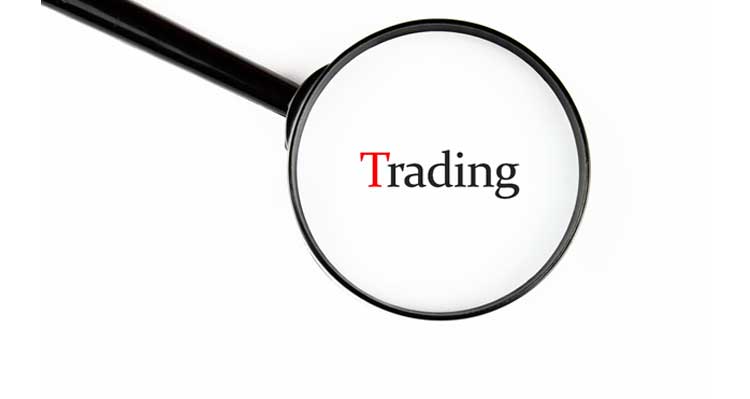 Futures trading offers a dynamic pathway for traders to speculate on or hedge against the future values of a wide array of commodities, indices, and financial instruments. Whether you’re drawn to the agricultural sector, energies, metals, or financial indices, understanding the foundational steps to start trading futures is crucial. This guide walks you through the process, emphasizing the importance of partnering with a reputable brokerage firm that boasts top technology and service credentials, such as a 5 out of 5-stars rating on TrustPilot and a long-standing establishment since 1988.
Futures trading offers a dynamic pathway for traders to speculate on or hedge against the future values of a wide array of commodities, indices, and financial instruments. Whether you’re drawn to the agricultural sector, energies, metals, or financial indices, understanding the foundational steps to start trading futures is crucial. This guide walks you through the process, emphasizing the importance of partnering with a reputable brokerage firm that boasts top technology and service credentials, such as a 5 out of 5-stars rating on TrustPilot and a long-standing establishment since 1988.

Futures Trading
Before diving into the specifics of opening a futures account, it’s essential to grasp what futures trading entails. Futures contracts are legal agreements to buy or sell a particular commodity or financial instrument at a predetermined price at a specified time in the future. Unlike stocks, which give you a piece of ownership in a company, futures are contracts that bet on the future direction of prices.
Step 1: Educate Yourself
The first step in your trading journey should be education. Futures trading comes with its set of risks and complexities, and being well-informed can significantly mitigate those risks. Many reputable brokerage firms offer educational resources, ranging from webinars and tutorials to comprehensive guides on strategy and risk management.
Step 2: Assess Your Financial Readiness
Futures trading involves leverage, which can amplify both gains and losses. Assess your financial situation, risk tolerance, and investment goals. It’s vital to ensure that you have sufficient risk capital – money you can afford to lose without affecting your lifestyle.
Step 3: Choose a Reputable Brokerage Firm
Selecting a brokerage firm is a pivotal decision in your trading journey. Look for a broker with a stellar reputation, as evidenced by high ratings on review platforms like TrustPilot. A firm established in 1988, for instance, likely offers a wealth of experience and a proven track record. Here’s what to consider:
- Regulation and Security: Ensure the brokerage is registered with relevant regulatory bodies and offers robust security measures to protect your funds and personal information.
- Technology: Top-tier trading platforms provide real-time data, advanced charting tools, and fast execution speeds, which are essential for successful futures trading. The ability to trade on the go through mobile apps is also a plus.
- Customer Service: High-quality support is crucial, especially for beginners. Look for a brokerage that offers accessible and knowledgeable customer service.
- Fees and Commissions: Understand all potential costs, including account fees, commission rates, and spread costs. Competitive pricing is important, but it should not be the sole criterion.
- Educational Resources and Tools: A broker that offers comprehensive educational materials and trading tools demonstrates a commitment to their clients’ success.
Step 4: Open a Futures Account
Once you’ve selected a brokerage firm, the next step is to open a futures trading account. The process is generally straightforward but requires attention to detail. Here’s how to proceed:
- Application: Complete the online application form on the broker’s website. This form will require your personal information, financial details, and trading experience.
- Documentation: Submit any required documentation, which typically includes a government-issued ID and proof of residence. This step is crucial for the broker to comply with KYC (Know Your Customer) regulations.
- Review and Approval: The brokerage will review your application and documents. This process can take a few days. Some brokers may request additional information or conduct an interview to better understand your trading experience and objectives.
- Funding Your Account: Once your account is approved, you’ll need to fund it to start trading. Brokers offer various funding methods, including bank transfers, credit cards, and e-wallets. Be mindful of the minimum deposit requirements and funding times.
- Platform Access: With your account funded, you’ll gain access to the broker’s trading platform. Take this opportunity to familiarize yourself with the platform’s features and tools. Many brokers offer demo accounts, allowing you to practice trading in a risk-free environment.
Step 5: Develop a Trading Plan
A well-thought-out trading plan is essential for navigating the futures markets successfully. Your plan should outline your trading strategy, risk management techniques, and specific goals. It should also specify how you’ll make decisions regarding entry, exit, and position sizing.
Step 6: Start Trading
With your account set up and your trading plan in hand, you’re ready to start trading futures. Begin with small positions to manage risk effectively, especially as you’re learning. Continuously analyze your trades and adjust your strategies as needed.
Open an Account at E-Futures.com
Choosing the Right Brokerage
Consider a brokerage firm that ticks all the right boxes: established in 1988, it boasts decades of experience and stability in the futures market. Its TrustPilot rating shines at 5 out of 5 stars, reflecting exceptional customer satisfaction in terms of service, reliability, and technology. Such a broker not only offers a robust trading platform but also prioritizes client education and support, ensuring traders at all levels have access to top-tier resources and guidance.
Final Thoughts
Starting your journey in futures trading can be exhilarating yet daunting. The key to a successful trading career involves continuous learning, disciplined risk management, and the support of a reputable brokerage firm. By following these steps and leveraging the expertise of a well-established broker with top-notch technology and service, you can navigate the futures markets more confidently and effectively. Remember, the goal is not just to start trading futures but to do so in a way that aligns with your financial goals and risk tolerance.
Top of FormReady to start trading futures? Call US 1(800)454-9572 – Int’l (310)859-9572 email info@cannontrading.com and speak to one of our experienced, Series-3 licensed futures brokers and start your futures trading journey with E-Futures.com today.
Disclaimer – Trading Futures, Options on Futures, and retail off-exchange foreign currency transactions involves substantial risk of loss and is not suitable for all investors. Past performance is not indicative of future results. You should carefully consider whether trading is suitable for you in light of your circumstances, knowledge, and financial resources. You may lose all or more of your initial investment. Opinions, market data, and recommendations are subject to change at any time.
**This article has been generated with the help of AI Technology. It has been modified from the original draft for accuracy and compliance.
***@cannontrading on all socials.








